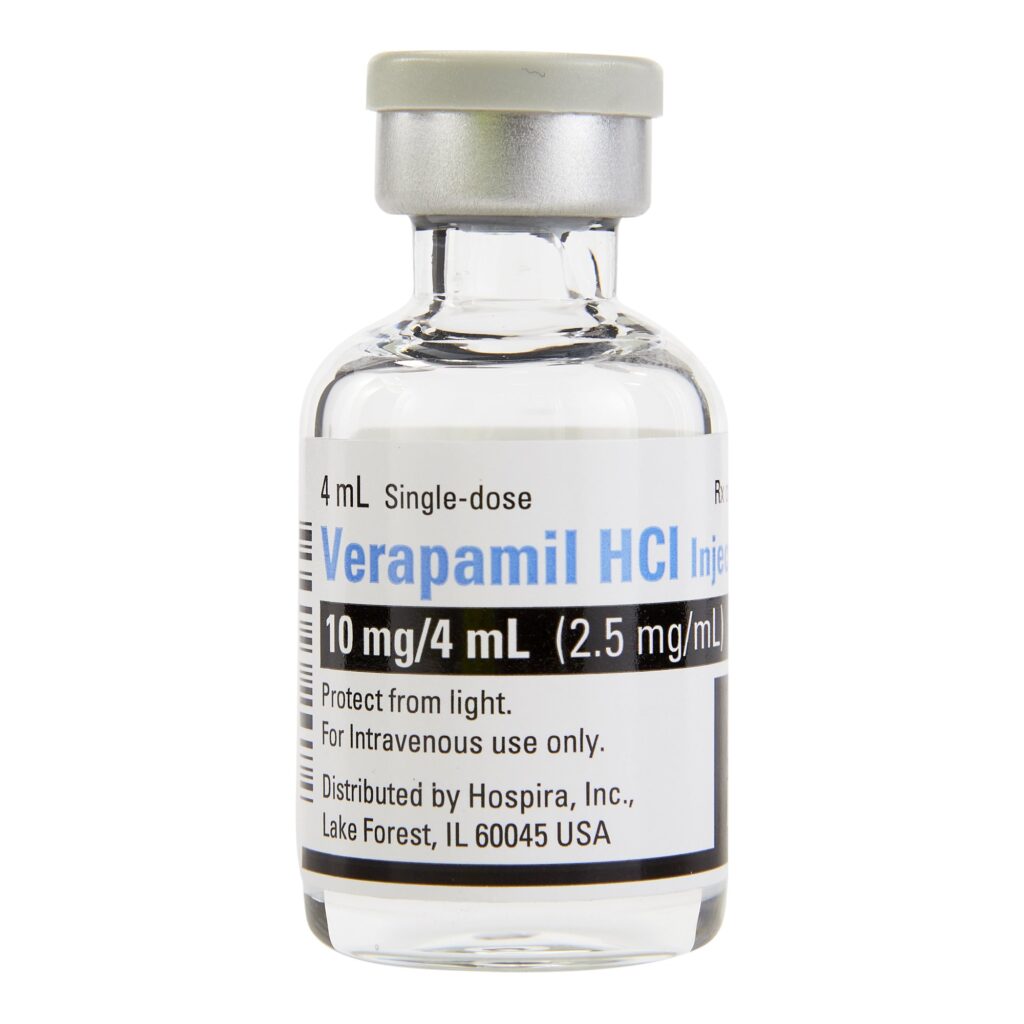✅ Generic Name:
Verapamil Hydrochloride Injection 2.5 mg/mL
✅ Prescription Status:
Prescription-only medicine (Rx) – Must be administered under medical supervision in a hospital or clinical setting.
📄 Description:
Verapamil Injection 2.5 mg/mL is a parenteral calcium channel blocker used for acute control of arrhythmias and in emergency cardiovascular care. It contains 2.5 mg of Verapamil Hydrochloride per mL in a sterile solution, typically supplied in 2 mL or 4 mL ampoules or vials.
🌿 Nature / Class:
- Pharmacologic class: Calcium Channel Blocker (non-dihydropyridine, phenylalkylamine)
- Therapeutic class: Antiarrhythmic (Class IV), Antihypertensive
- Mechanism of action: Inhibits calcium influx in cardiac and vascular smooth muscle cells, slowing AV nodal conduction and reducing myocardial oxygen demand.
🎯 Purpose / Indications:
- Paroxysmal Supraventricular Tachycardia (PSVT)
- Atrial fibrillation or flutter with rapid ventricular response
- Emergency rate control in arrhythmias
- Used IV only, usually when oral treatment is not feasible or rapid onset is required
✅ Advantages:
- Rapid onset of action within minutes
- Effective rate control in supraventricular tachyarrhythmias
- Useful in critical care settings
- Alternative to adenosine for PSVT conversion in some cases
📦 Common Packaging:
- Ampoules or vials
- Commonly: 2 mL (5 mg total) or 4 mL (10 mg total)
- Concentration: 2.5 mg/mL
- Supplied as a clear, colorless to slightly yellow solution for intravenous use
❄️ Storage Conditions:
- Store below 25°C (77°F)
- Protect from light
- Do not freeze
- Use immediately after opening
- Do not use if solution is cloudy or contains particles
👨⚕️ Patient Advice / Precautions:
- Administered only in a hospital or setting with ECG monitoring
- Monitor blood pressure, ECG, and heart rate continuously during administration
- Inform medical team about any allergies or current medications
- Watch for signs of bradycardia, hypotension, or AV block
- Contraindicated in:
- Severe hypotension
- Cardiogenic shock
- Advanced AV block (unless pacemaker present)
- Sick sinus syndrome

